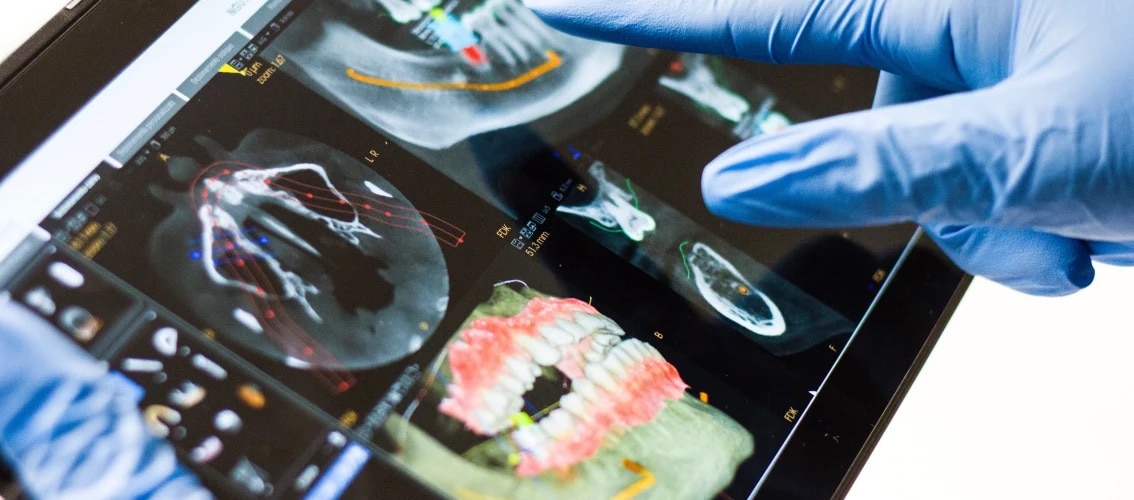No – dentists are not considered physicians under U.S. medical, legal, or regulatory definitions. While dentists and physicians both complete doctoral-level education and use the title “Doctor” in clinical settings, their training pathways, scopes of practice, and professional classifications are distinct. For physicians evaluating professional roles across healthcare, the difference is formal, not semantic.
Early in your review, it may help to compare and evaluate professional classifications side by side – particularly when distinctions affect licensure, benefits, or coverage structures.
What Is the Professional Difference Between a Dentist and a Physician?
Dentists are doctors of dental medicine or dental surgery, while physicians are doctors of medicine or osteopathic medicine.
Dentists earn a DDS (Doctor of Dental Surgery) or DMD (Doctor of Dental Medicine) and focus exclusively on oral health, including the teeth, gums, jaw, and related structures. Physicians earn an MD or DO and are trained to diagnose and treat conditions affecting the entire body across a wide range of systems.
Although both are licensed clinicians, U.S. healthcare regulation, medical boards, and insurance frameworks classify dentists and physicians as separate professions. This distinction is foundational to how healthcare delivery is structured nationwide.
For additional physician-specific context on professional classification, LeverageRx outlines these distinctions in its physician disability insurance education hub.
Why Are Dentists Often Mistaken for Physicians?
Dentists are often mistaken for physicians because both complete doctoral-level education and use the title “Doctor” in practice.
From a patient perspective, the overlap in clinical authority – diagnosing conditions, performing procedures, prescribing medications – can blur professional boundaries. Some dental specialties, particularly oral and maxillofacial surgery, also intersect with broader medical care.
However, professional classification is determined by training scope and regulatory oversight, not by the use of the “Dr.” title. Medical boards and dental boards operate separately, reinforcing this distinction at a legal and professional level.
How Does Dental School Training Compare to Medical School?
Dental and medical education share early scientific foundations but diverge significantly in scope and duration.
Dental school typically consists of four years after undergraduate education. The curriculum includes anatomy, pharmacology, pathology, and ethics, followed by supervised clinical training focused on oral health. Graduates earn a DDS or DMD and must pass state dental licensing exams.
Medical school also requires four years after undergrad but is followed by mandatory residency training lasting three to seven years or more, depending on specialty. This extended postgraduate training is a defining feature of physician education and expands clinical responsibility across multiple organ systems.
A detailed comparison of timelines and training intensity is outlined in LeverageRx’s analysis of dental school versus medical school.
How Do Dental Specialties Compare to Medical Specialties?
Dental specialties are narrower in scope and regulated separately from medical specialties.
Dentists may pursue additional training in areas such as orthodontics, periodontics, endodontics, prosthodontics, pediatric dentistry, or oral and maxillofacial surgery. These programs typically require two to six additional years but remain focused on oral and maxillofacial structures.
Medical specialties, such as internal medicine, cardiology, neurology, or surgery, require residency programs that encompass systemic disease management and hospital-based care. Oversight is provided by medical boards and specialty-specific accrediting bodies.
For regulatory clarity, the American Dental Association explains how dentistry is licensed and governed separately from medicine, reinforcing why dental specialties are not considered medical specialties. Similarly, the American Medical Association outlines the physician pathway and scope of practice that differentiates MDs and DOs from other doctoral clinicians.
Are Dentists Legally or Clinically Classified as Physicians?
Dentists are not legally or clinically classified as physicians in the United States.
Despite holding doctoral degrees, dentists are regulated under dental practice acts rather than medical practice acts. Insurance systems, credentialing bodies, and federal healthcare programs consistently treat dentistry as a separate profession.
If you want a deeper explanation of why dentistry is not part of medical school or medical licensure, LeverageRx provides a focused breakdown on whether dentists attend medical school and how that separation developed.
Key Takeaways
Dentists are not classified as physicians under U.S. medical, legal, or regulatory standards. Dentists earn DDS or DMD degrees and focus exclusively on oral and maxillofacial health, while physicians earn MD or DO degrees and are trained to treat the entire body. Although both professions use the title “Doctor” and complete rigorous doctoral education, their training pathways and scopes of practice differ substantially. These distinctions are reinforced through separate licensing boards, residency requirements, and healthcare regulation.

